Michel Barnier has raised the temperature in the row over deadlocked Brexit trade talks, warning that the UK has no “automatic entitlement” to trade with the EU on favourable terms.
The European Commission’s chief negotiator was hitting back after his UK counterpart David Frost yesterday claimed the bloc was making a sub-standard offer to Britain, which he said would lead to “a relatively low-quality trade agreement coming with unprecedented EU oversight of our laws and institutions”.
But in a letter of his own Mr Barnier said: “There is no automatic entitlement to any benefits that the EU may have offered or granted in other contexts and circumstances to other, often very different, partners.”
Download the new Independent Premium app
Sharing the full story, not just the headlines
The EU has previously said Britain needs to accept Europe has a sovereign right to impose whatever conditions it feels necessary on opening its markets to foreign countries.
But the UK has accused the EU of not respecting Britain’s sovereignty by refusing to sign a deal on the terms Britain wants. The EU wants what it calls a “level playing-field” clause in the deal, under which the UK would stay in tune with some regulations such as state aid and environmental protections.
In a broadside at the approach taken by the UK negotiator, Mr Barnier said: “I do not think, however, that an exchange of letters regarding the substance of the negotiations is necessarily the best way to discuss on substantial points.”
He said the EU was sticking to the political declaration that had been signed by Boris Johnson and which spells out the approach both sides would take to their future relationship.
In his letter on Tuesday, Mr Frost said Brussels’ proposed deal “contains novel and unbalanced proposals which would bind this country to EU law or standards”. The UK published its own legal text on Tuesday, which the EU has already been privately privy for a number of weeks.
But Mr Barnier said: “The UK cannot expect high-quality access to the EU Single Market if it is not prepared to accept guarantees to ensure that competition remains open and fair. The EU has been clear about this since 2017.”
The chief negotiator said this would “not mean that the UK would be bound by EU law after the end of the transition period in these areas” and that “the UK will remain entirely free to set its own higher standards” but that “we need to give ourselves concrete, mutual and reciprocal guarantees for this to happen”.
The latest news on Brexit, politics and beyond direct to your inbox
Brexit talks, which British sources close to the negotiations have described as “tetchy” and Mr Barnier has described as “disappointing”, have made little progress.
If the UK has not signed a deal by 1 January 2021 it will leave the single market and begin trading with the EU on World Trade Organisation terms, facing new tariffs and quotas.
The withdrawal agreement negotiated by Boris Johnson includes a provision to extend the transition period by up to two years, but the government has rejected calls to use it.
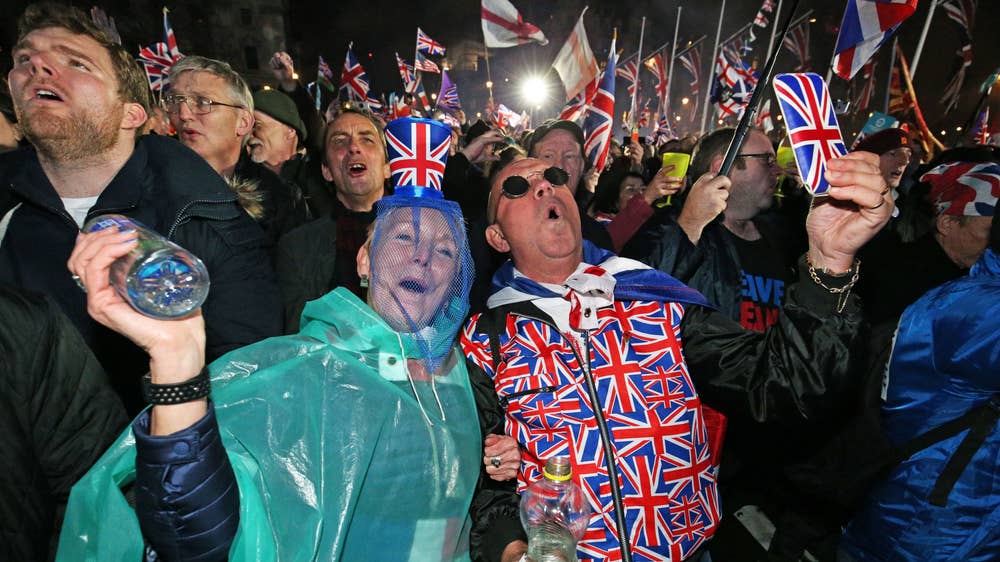

1/37
Pro-Brexit supporters celebrating in Parliament Square, after the UK left the European Union on 31 January. Ending 47 years of membership
PA
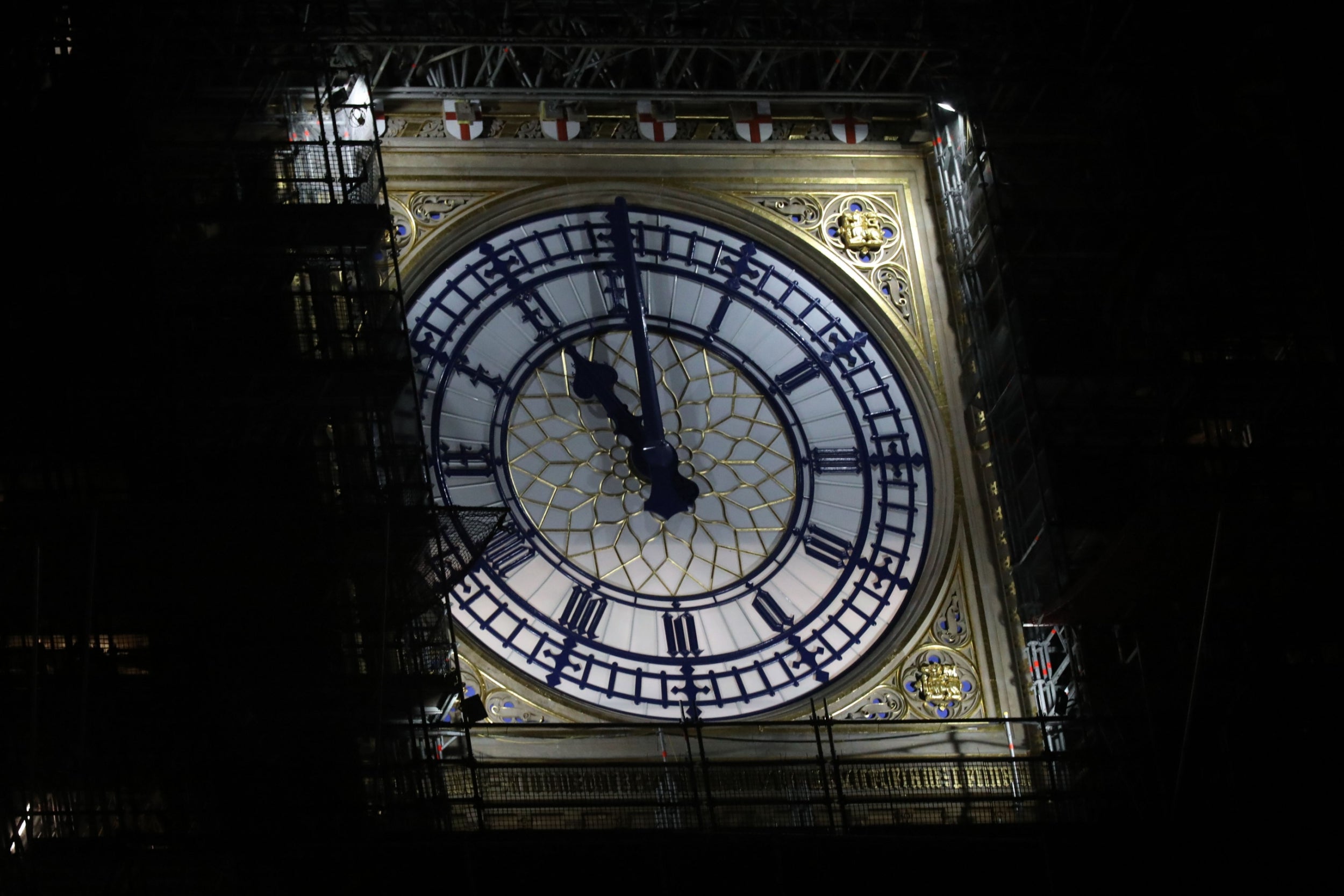
2/37
Big Ben, shows the hands at eleven o’clock at night
AFP via Getty
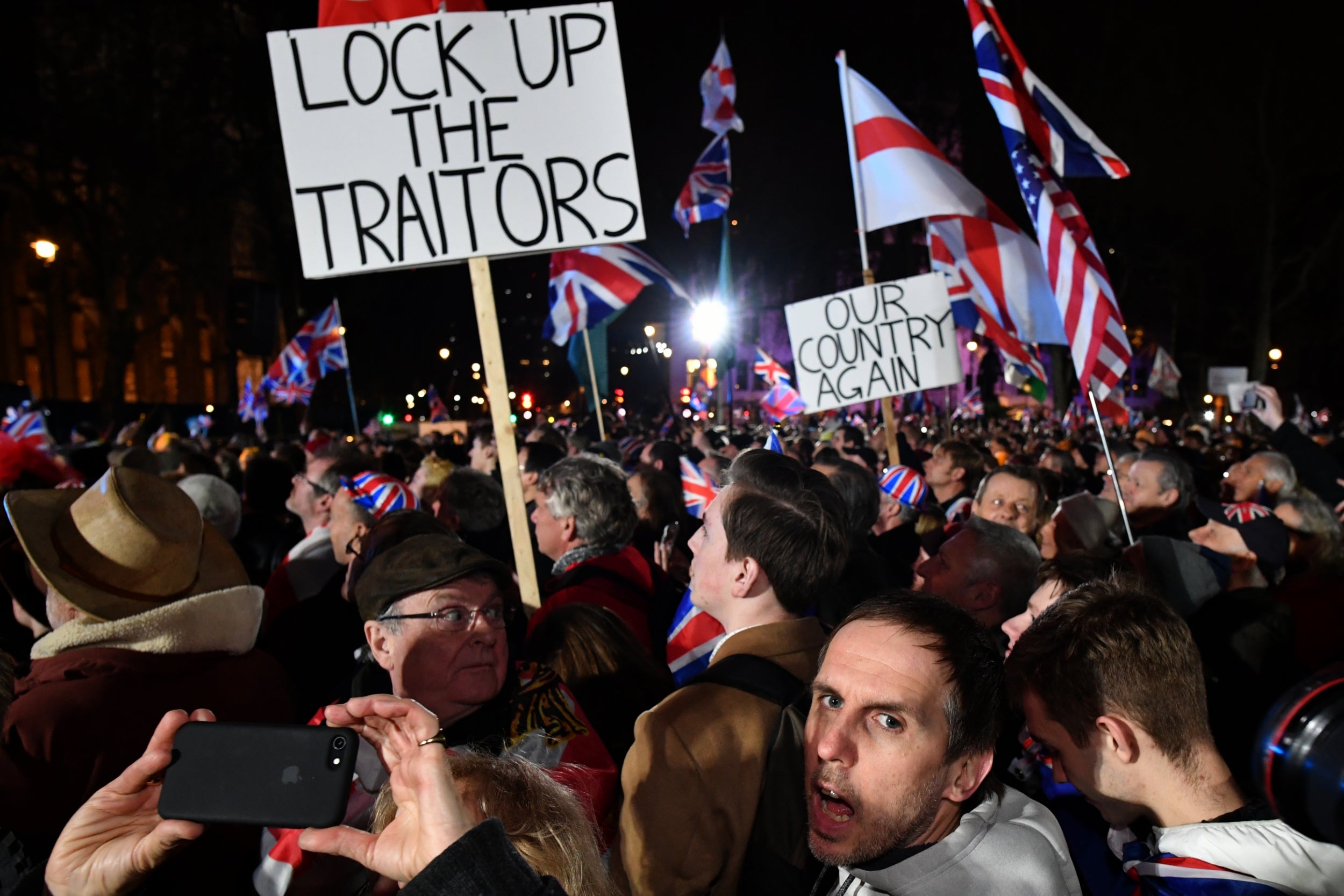
3/37
Pro Brexit supporters attend the Brexit Day Celebration Party hosted by Leave Means Leave
Getty
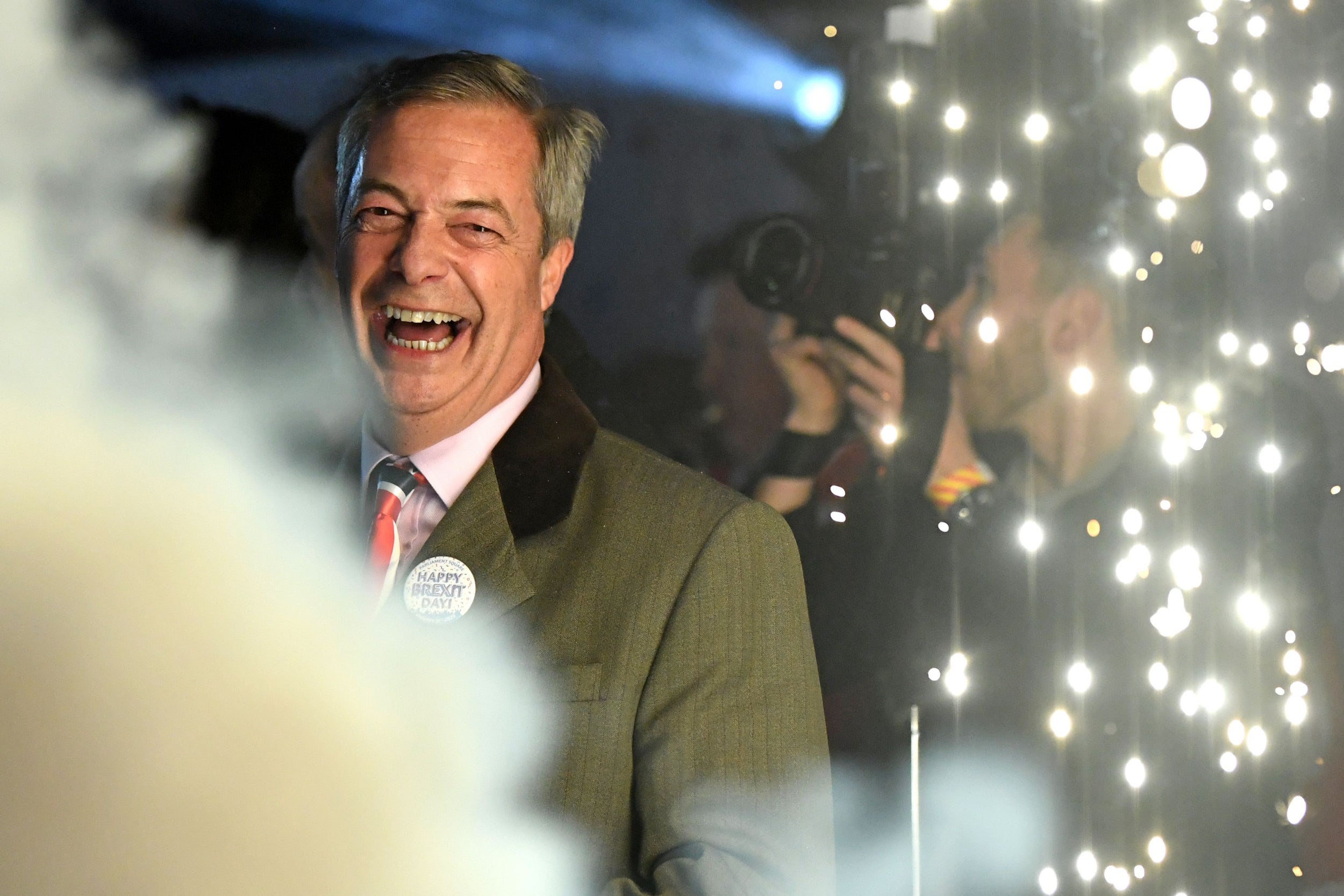
4/37
Brexit Party leader Nigel Farage smiles on stage
AFP/Getty
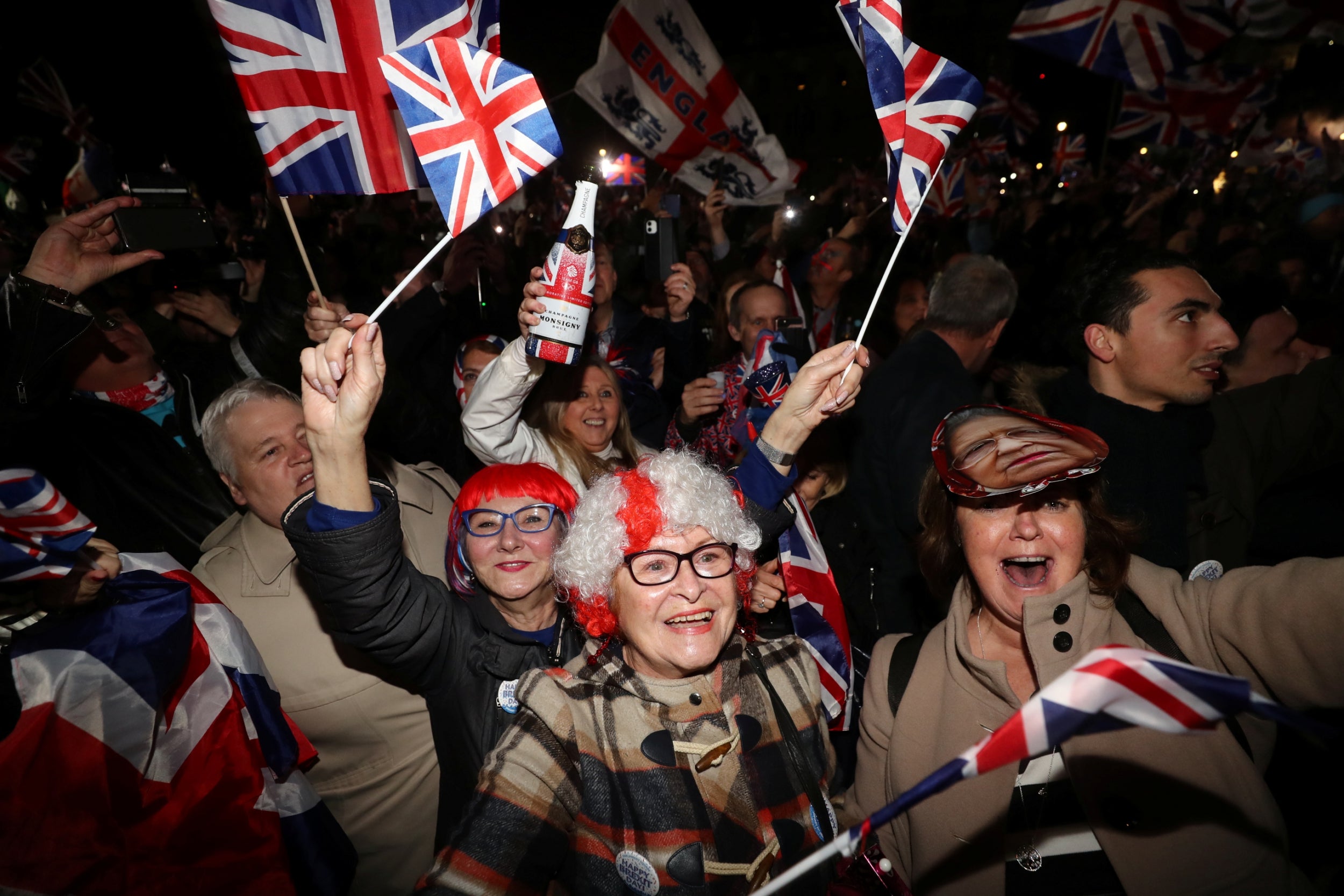
5/37
People celebrate in Parliament Square
Reuters
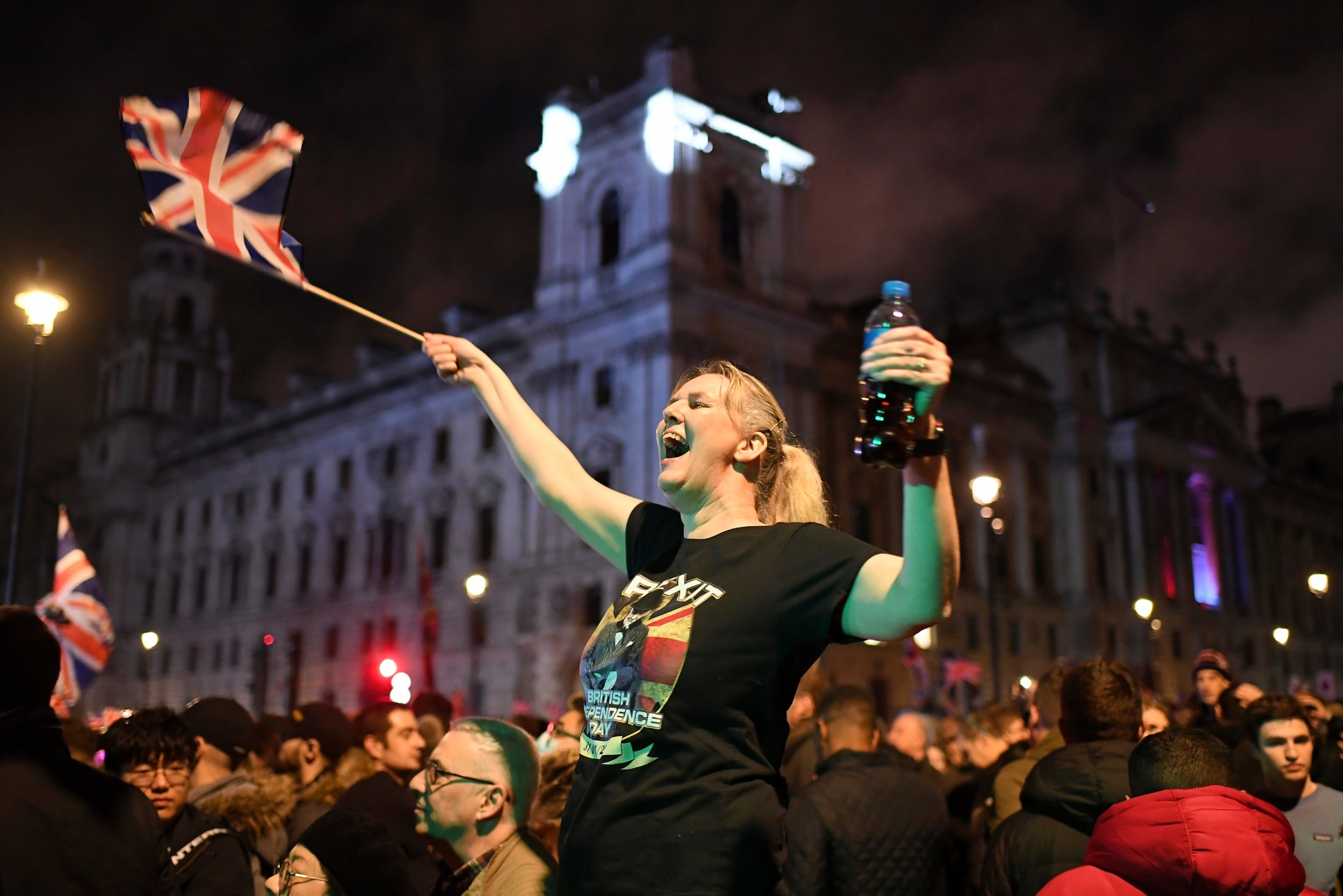
6/37
A Brexit supporter celebrates during a rally in Parliament square
AP
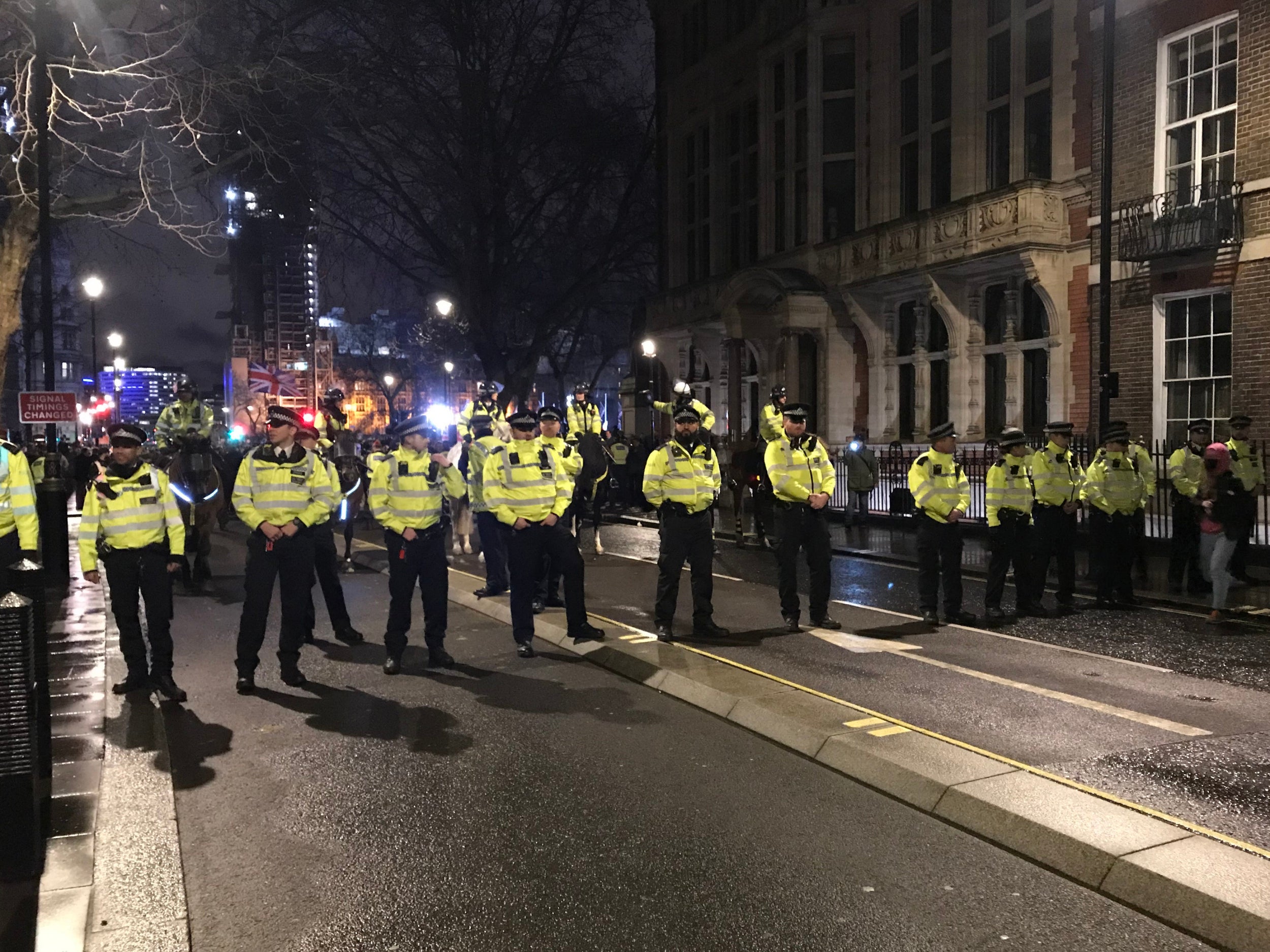
7/37
Police form a line at Parliament Square to prevent a small group of anti-Brexit protestors from going through to the main Brexit rally
PA

8/37
Nigel Farage speaks to pro-Brexit supporters
PA
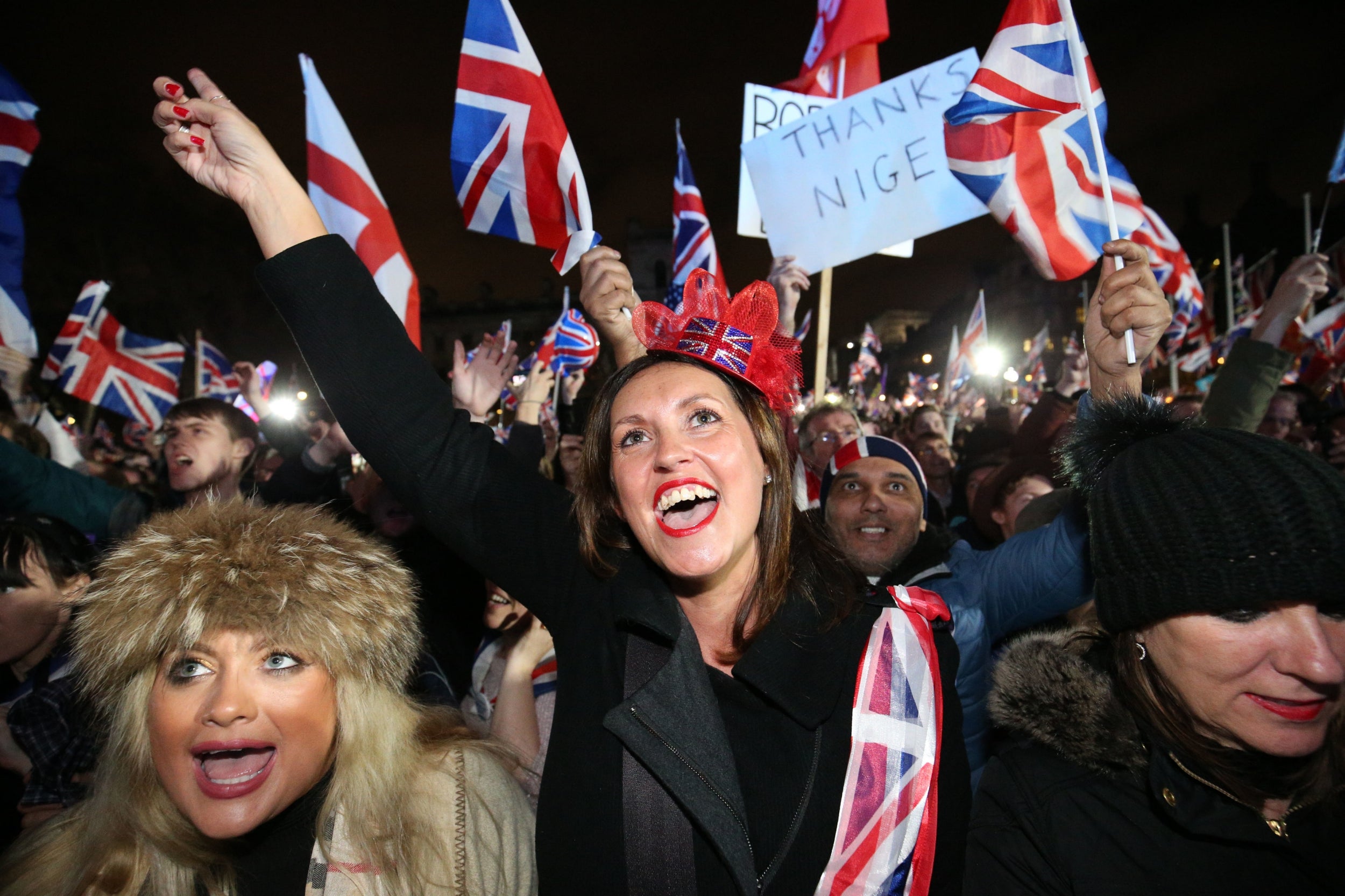
9/37
PA
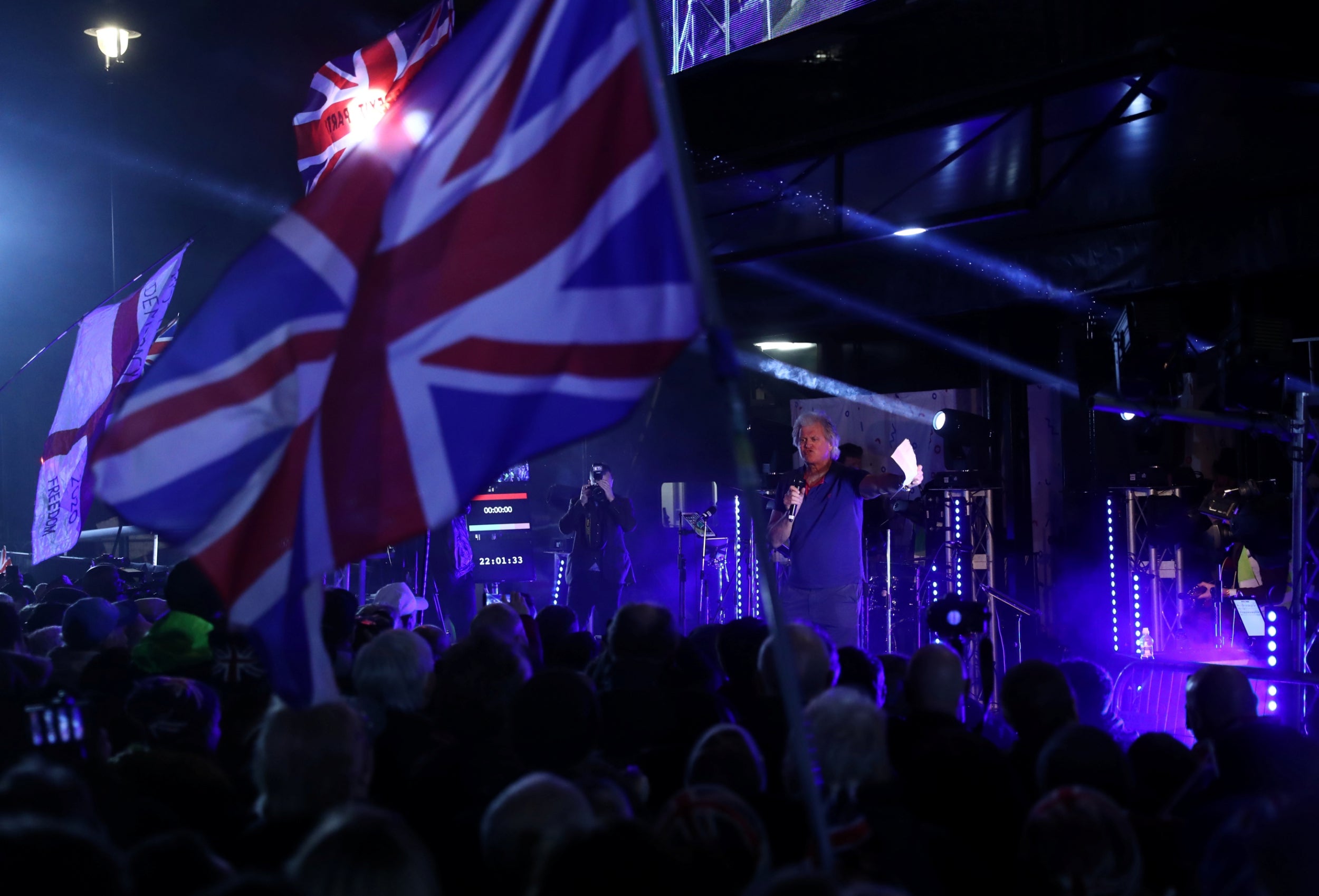
10/37
JD Wetherspoon Chairman Tim Martin speaks as people wave flags
Reuters

11/37
Getty
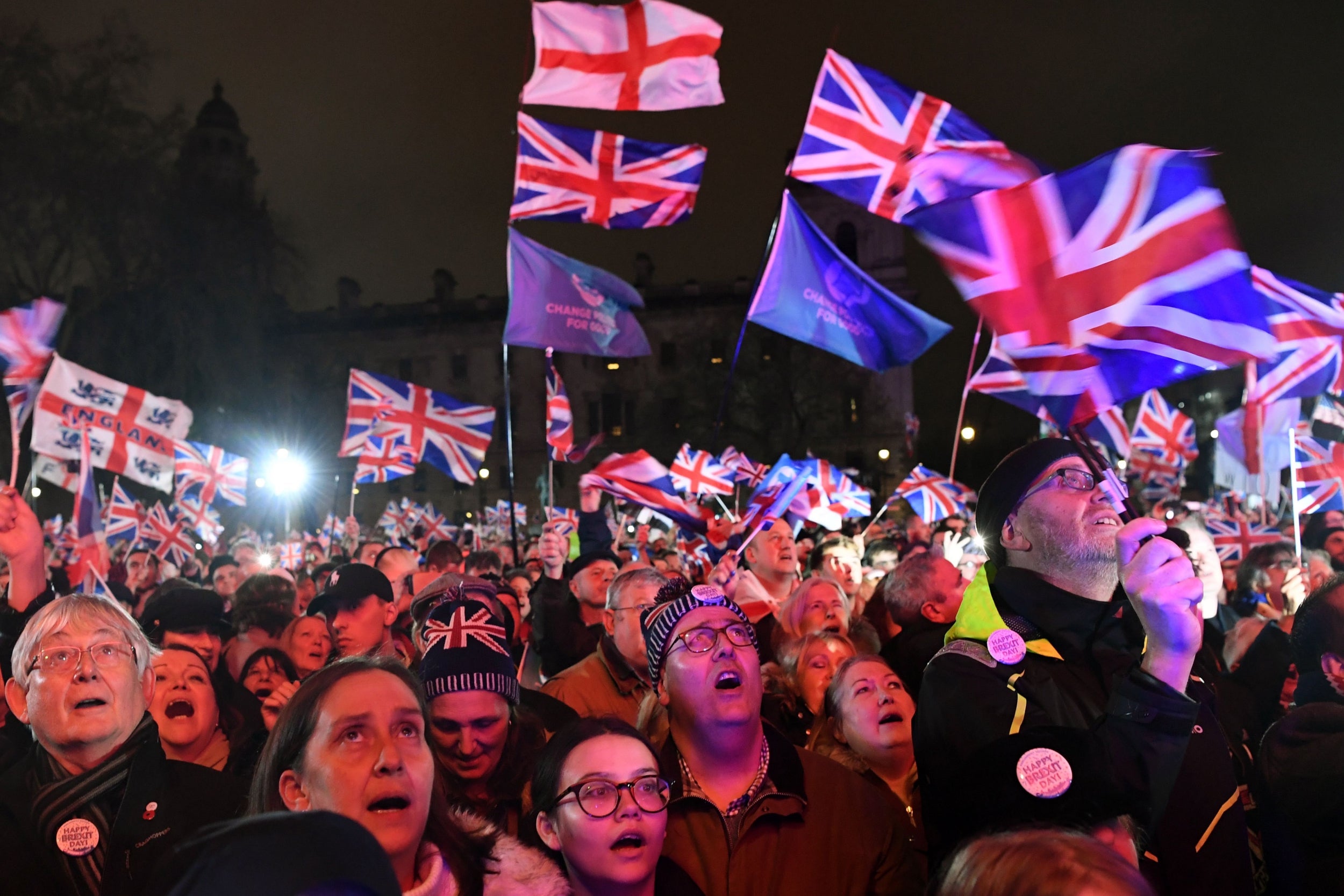
12/37
Brexit supporters wave Union flags as they watch the big screen
AFP via Getty
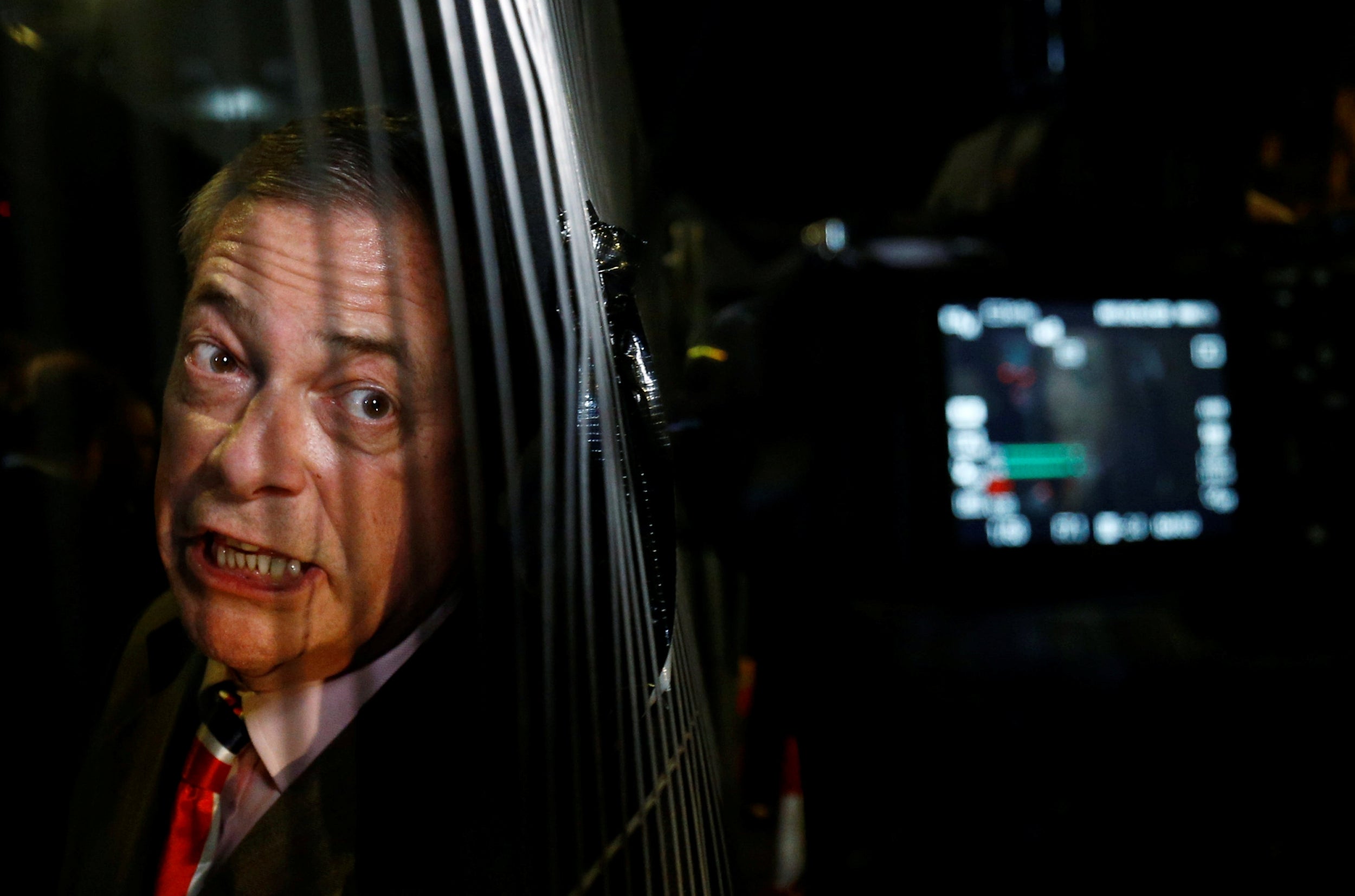
13/37
Brexit Party leader, Nigel Farage arrives
Reuters
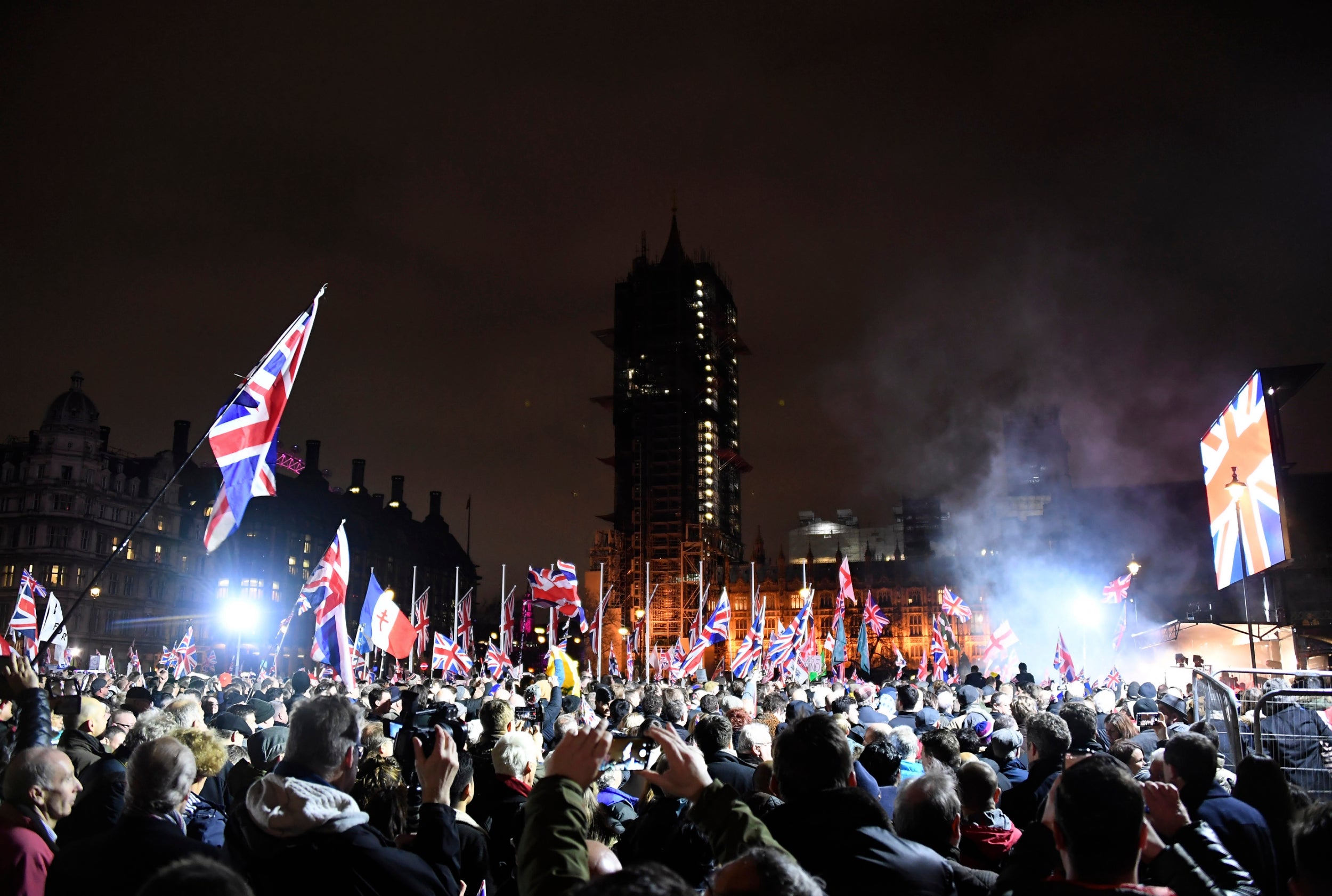
14/37
Brexit supporters gather
AP
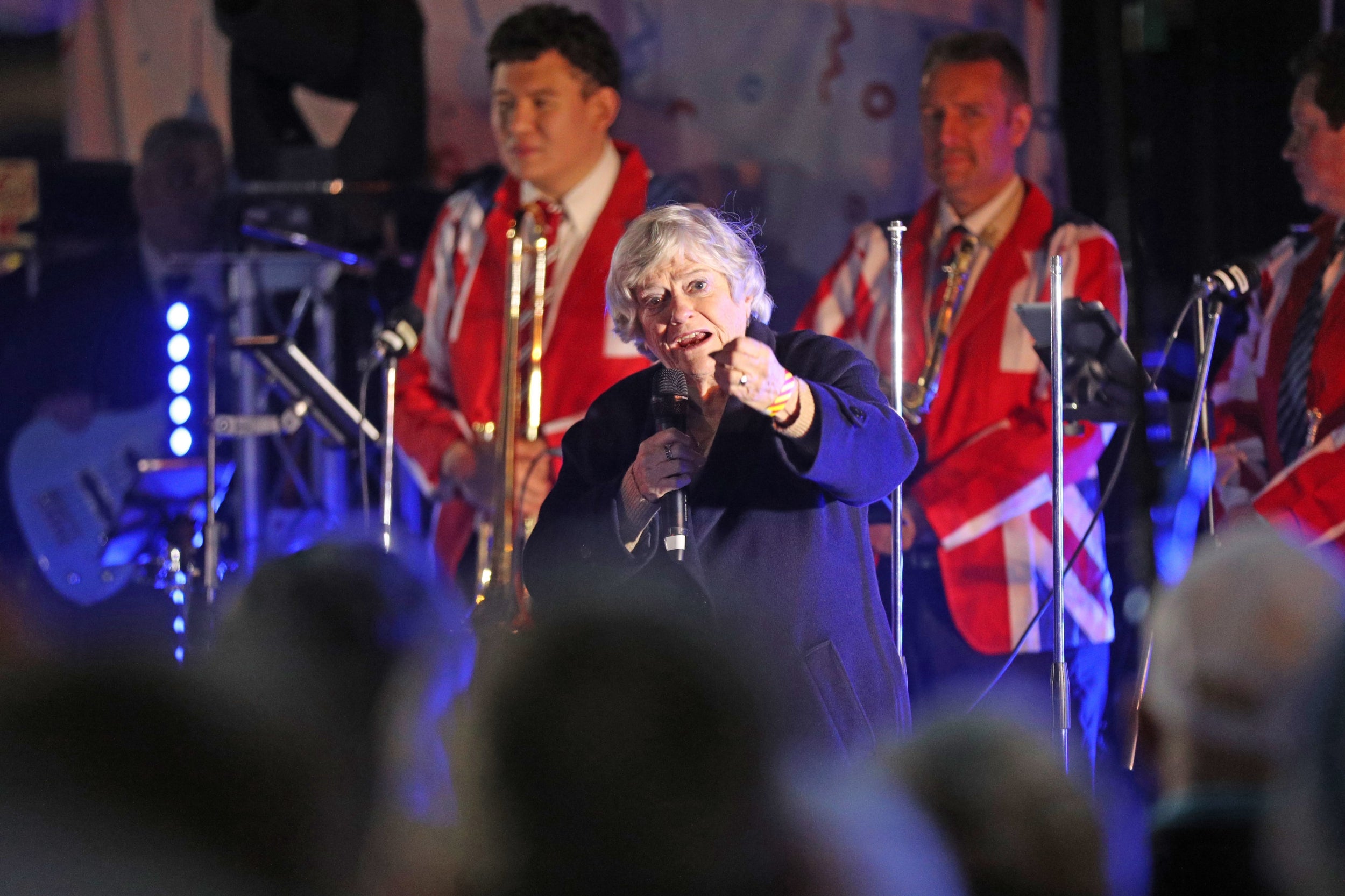
15/37
Ann Widdecombe speaks to pro-Brexit supporters
PA
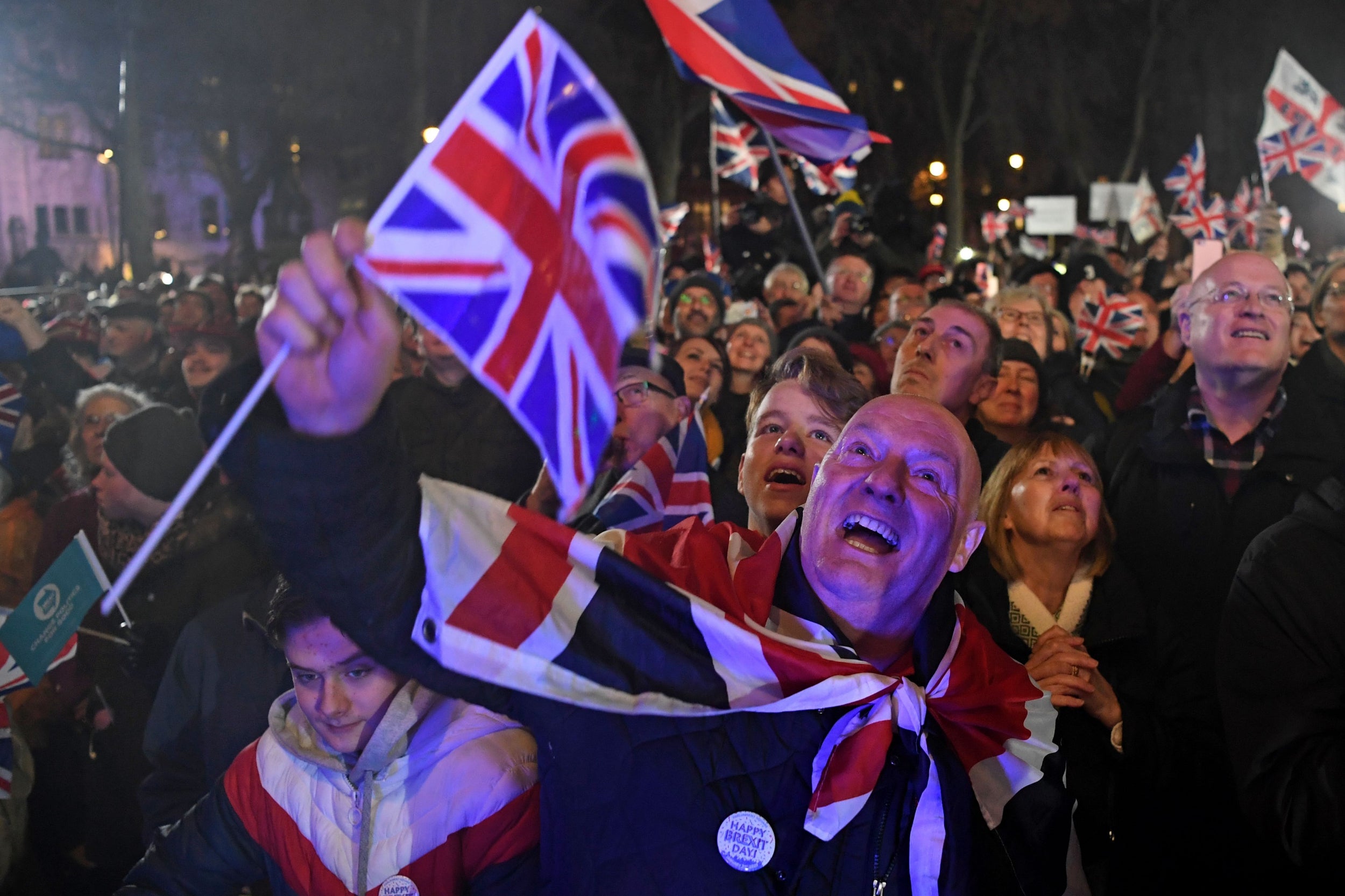
16/37
Brexit supporters wave Union flags as they watch the big screen
AFP via Getty
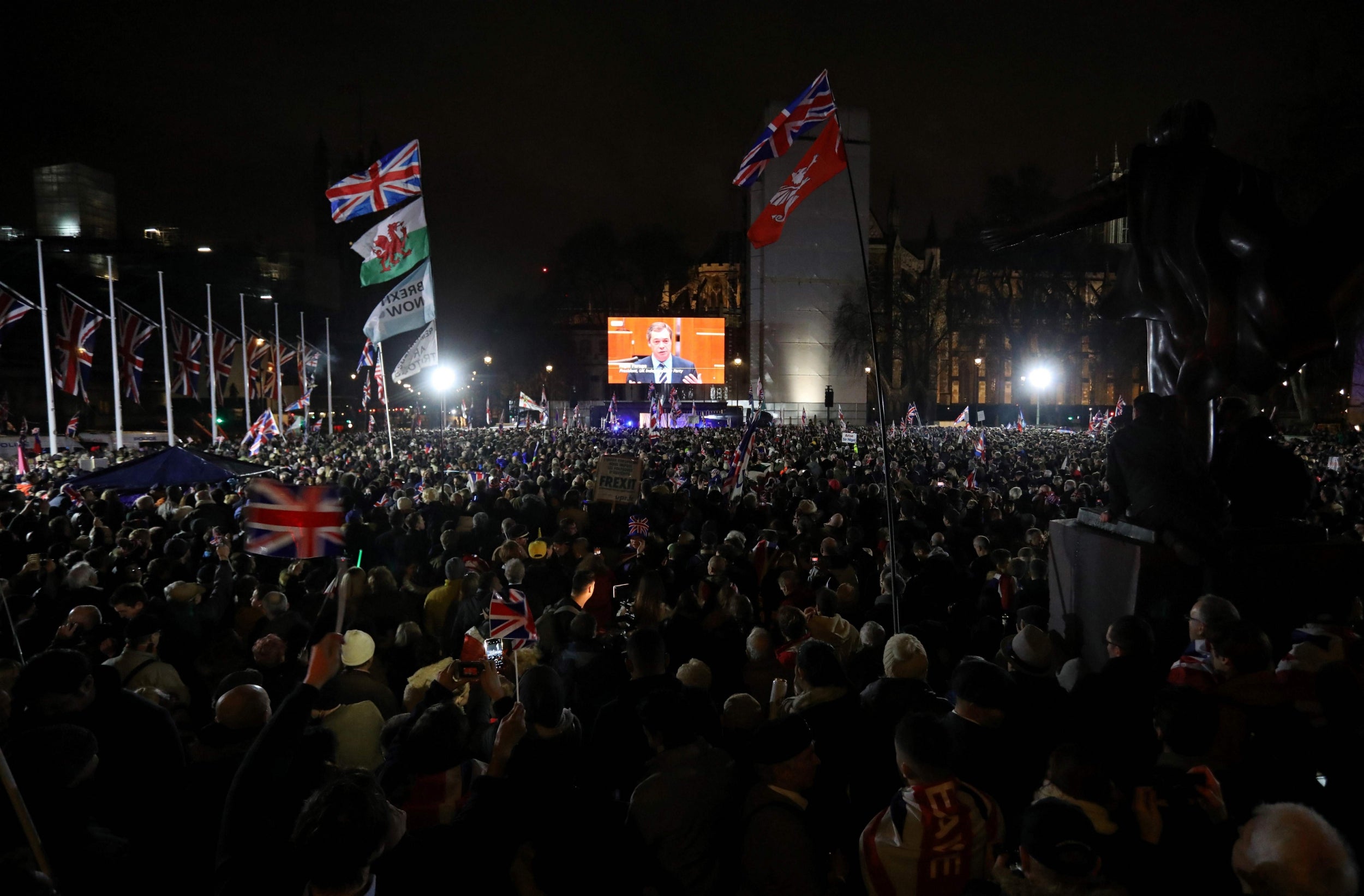
17/37
AFP via Getty

18/37
People wave British Union Jack flags as they celebrate
Reuters
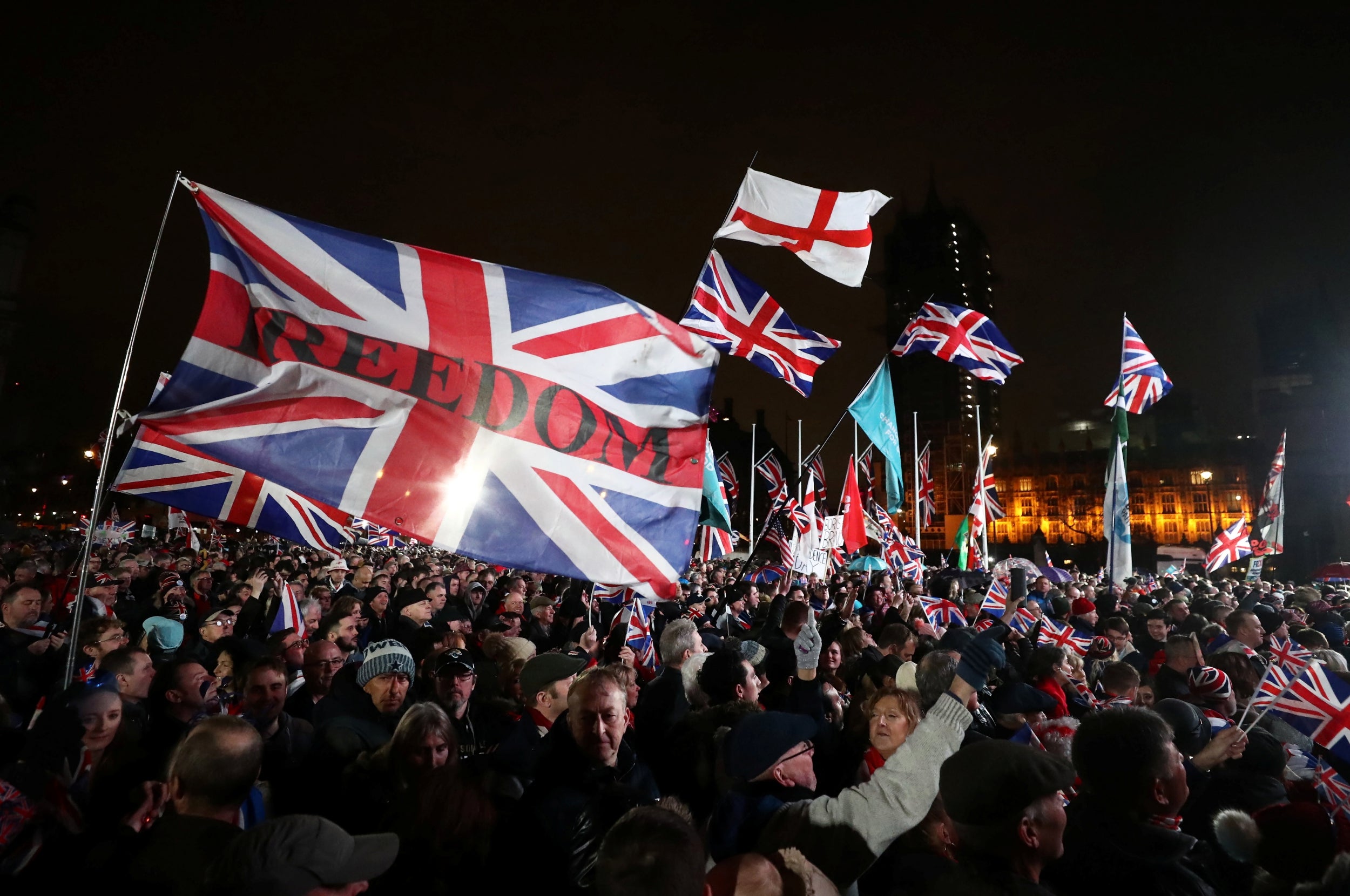
19/37
Pro-Brexit demonstrators celebrate on Parliament Square on Brexit day
Reuters

20/37
A pro-Brexit supporter jumps on an EU flag
PA
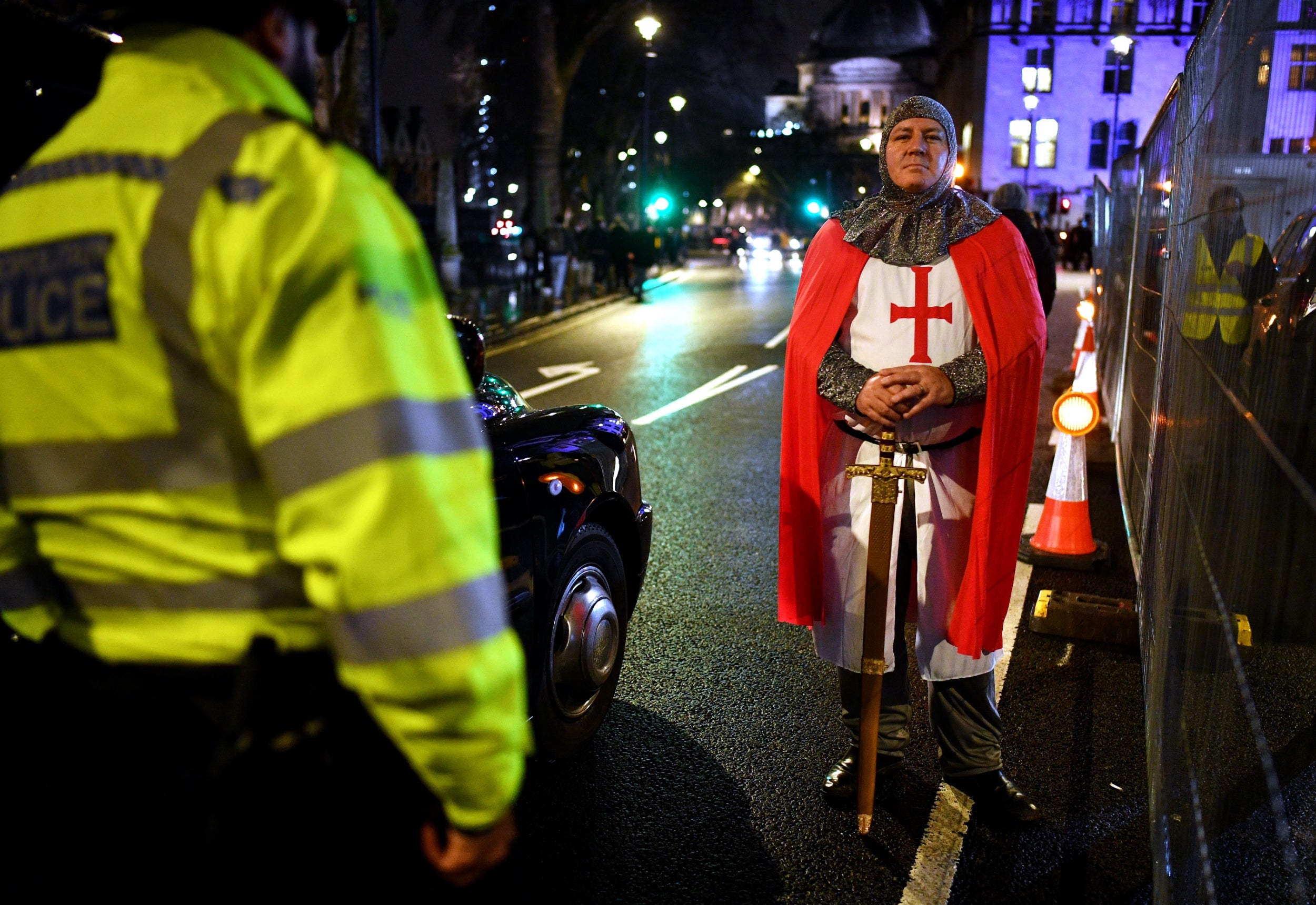
21/37
Getty

22/37
AFP via Getty
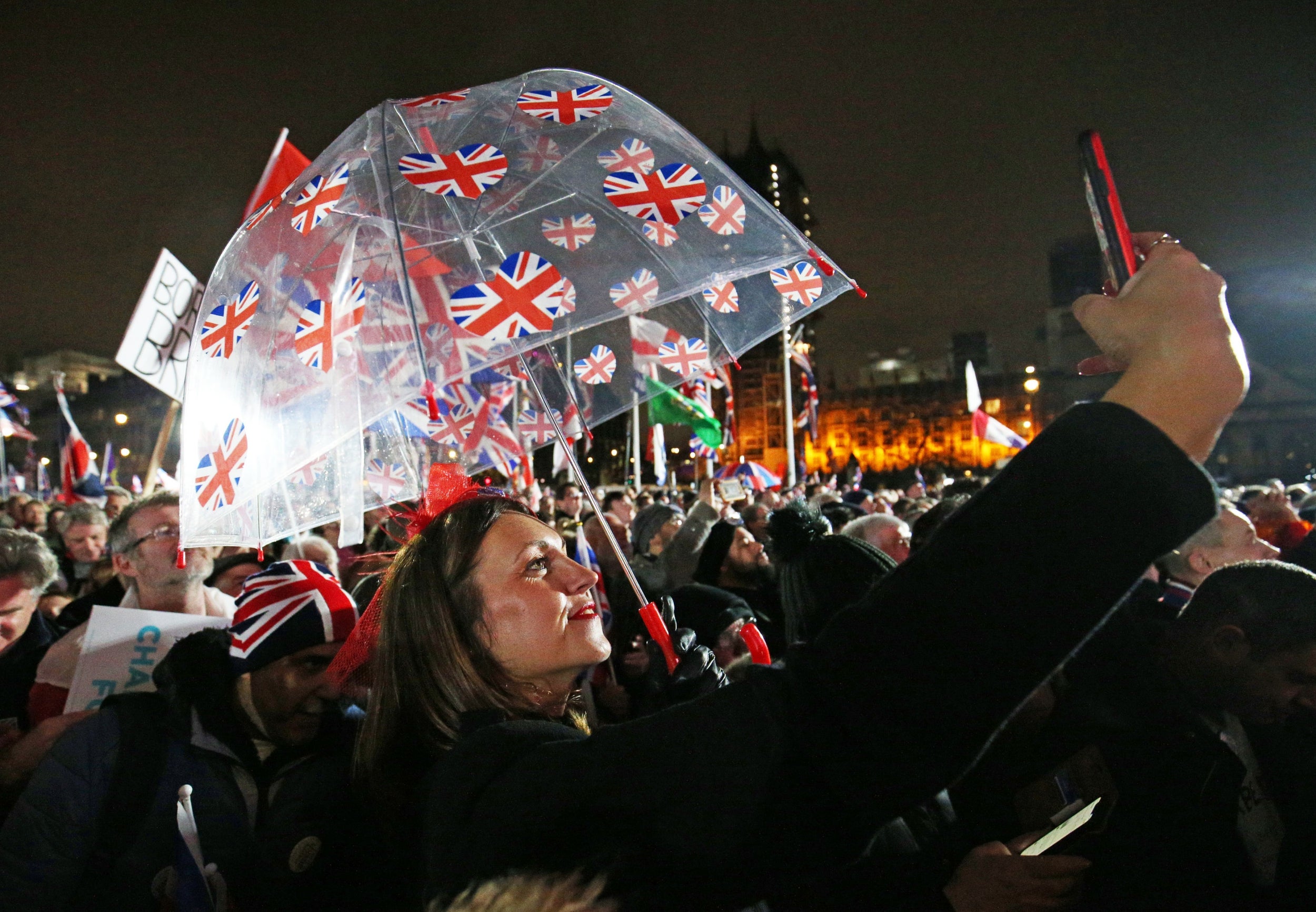
23/37
PA
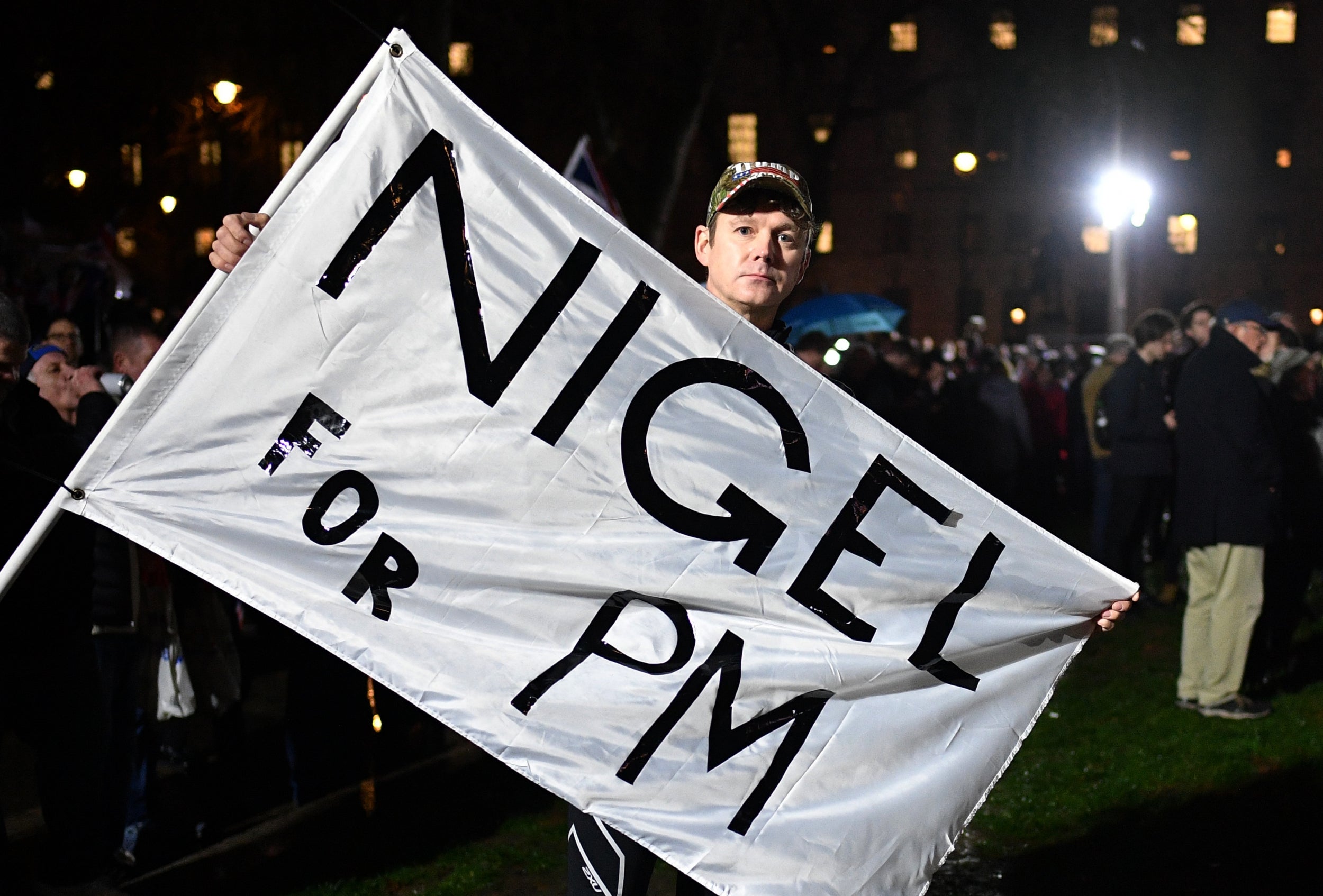
24/37
Getty
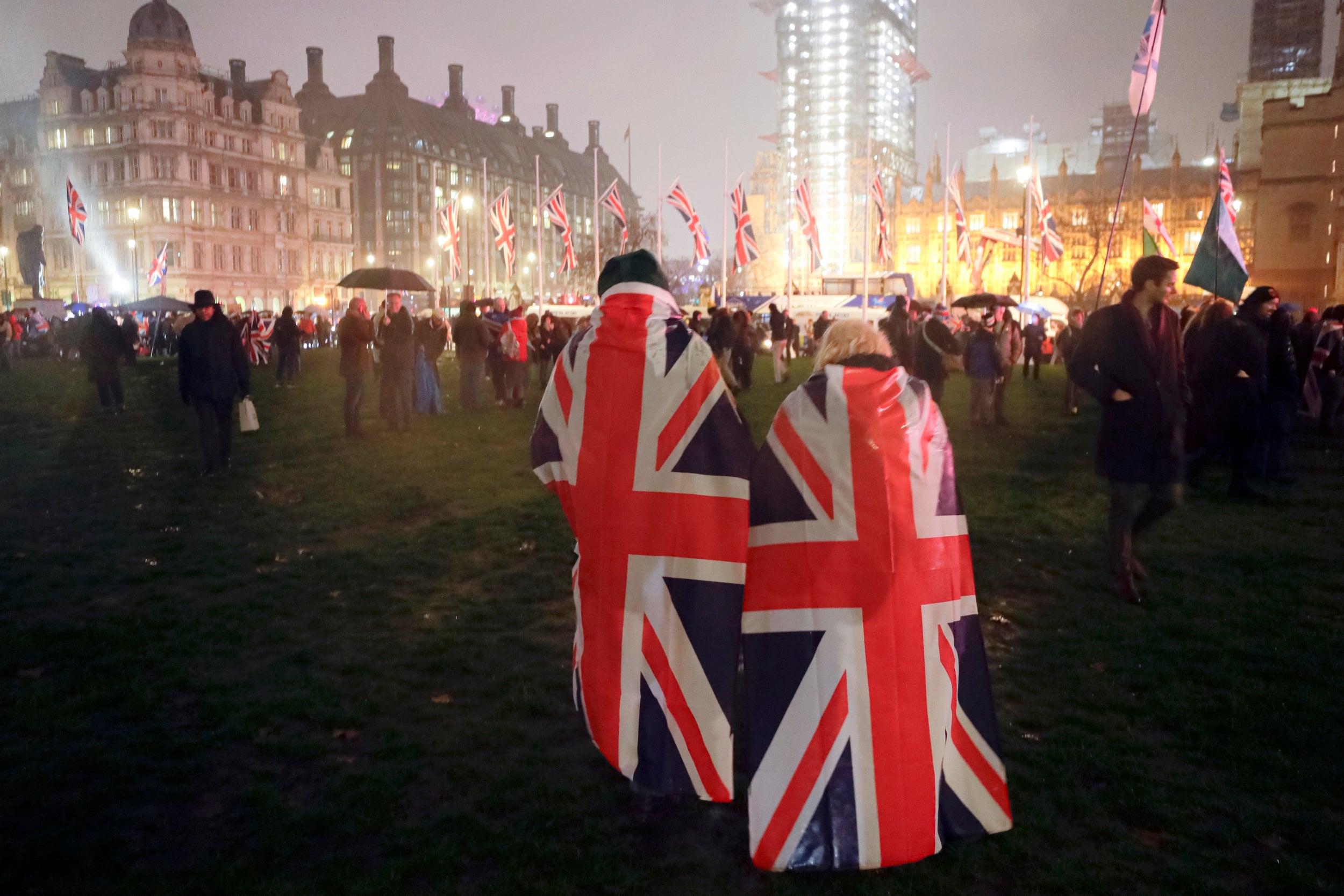
25/37
AP
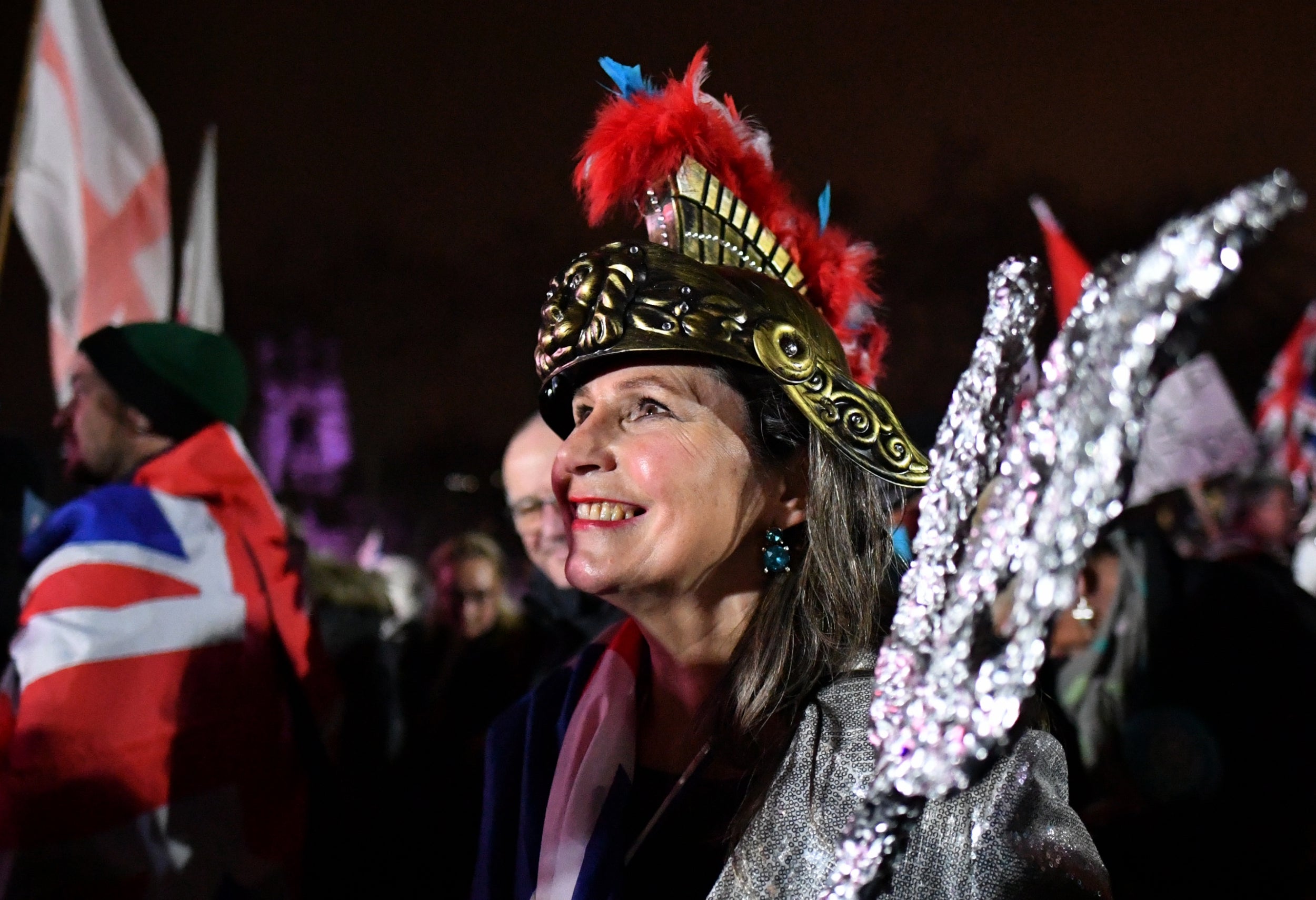
26/37
Getty
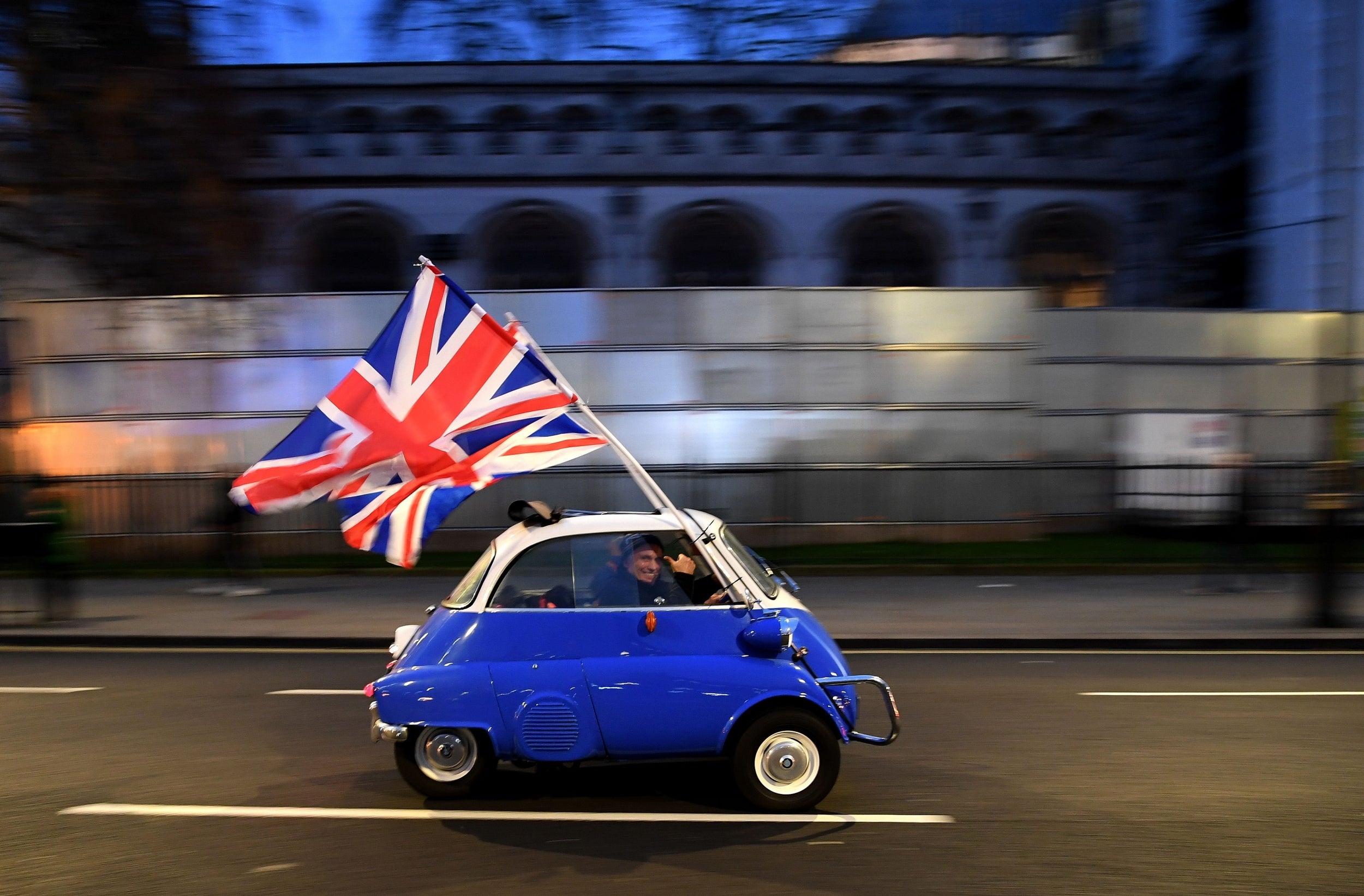
27/37
A man waves Union flags from a small car as he drives past Brexit supporters gathering
AFP via Getty
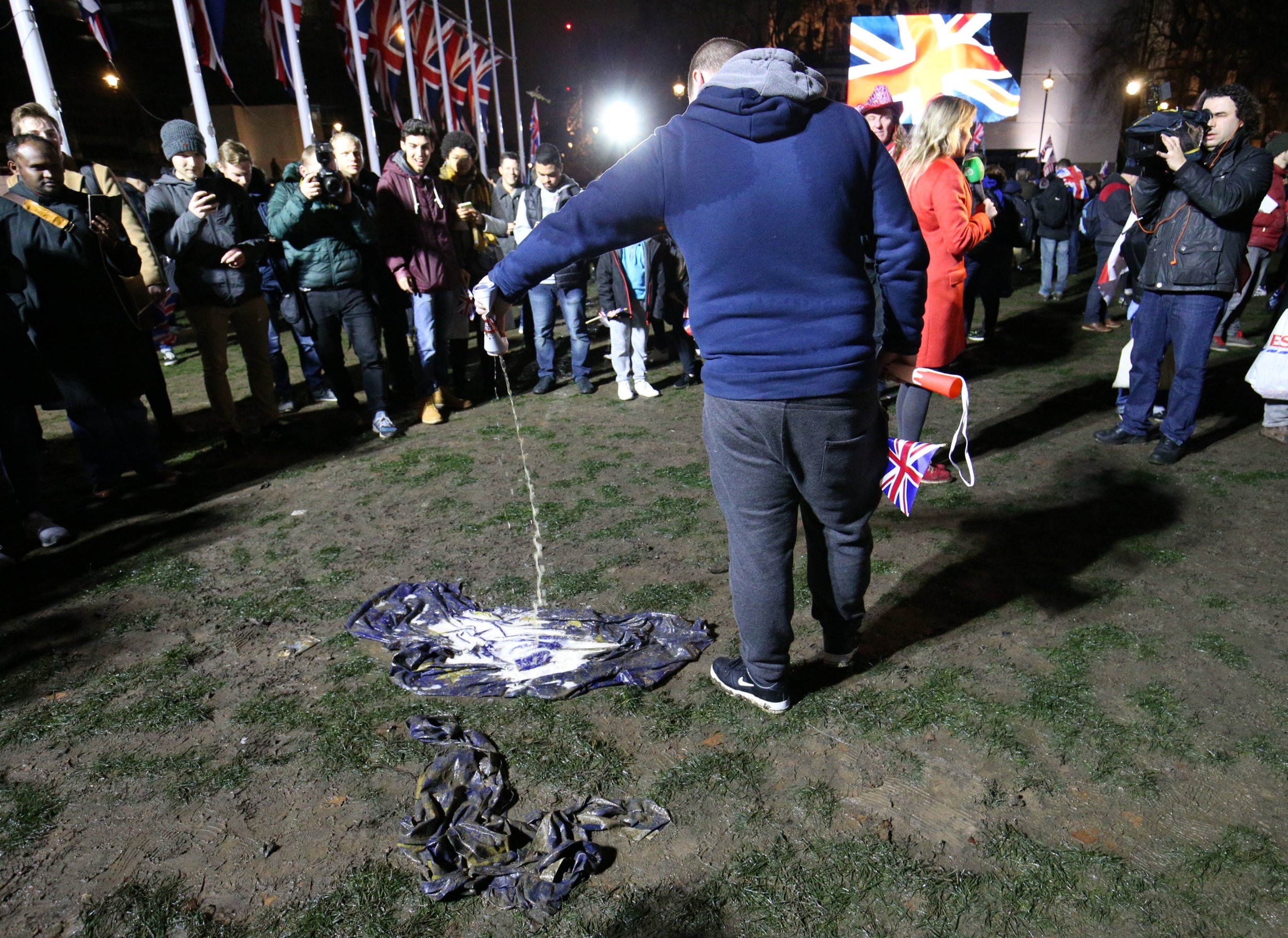
28/37
A pro-Brexit supporter pours beer onto an EU flag
PA

29/37
Getty
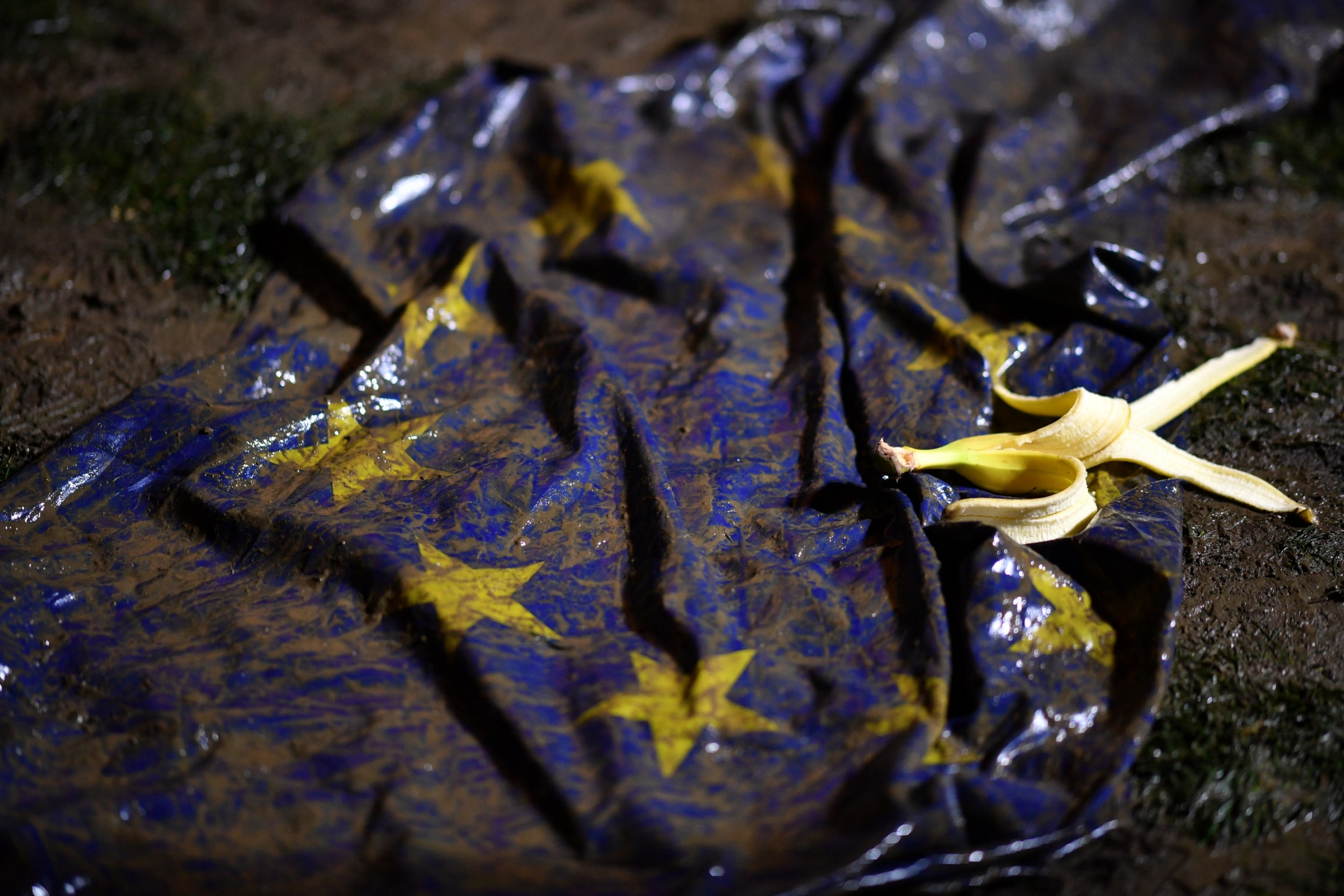
30/37
An EU flag lies trampled in the mud
Getty

31/37
Getty
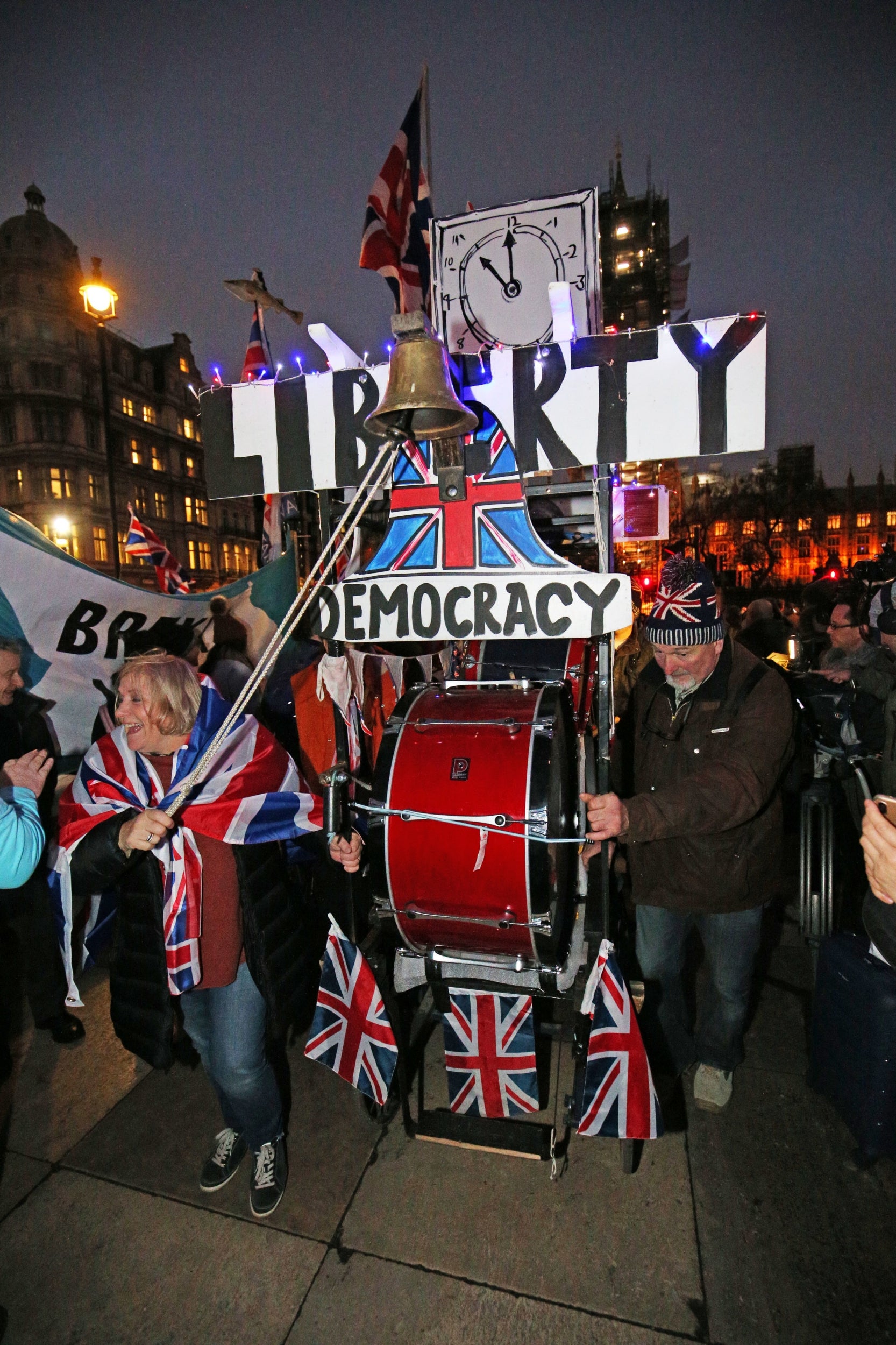
32/37
PA

33/37
PA

34/37
Getty
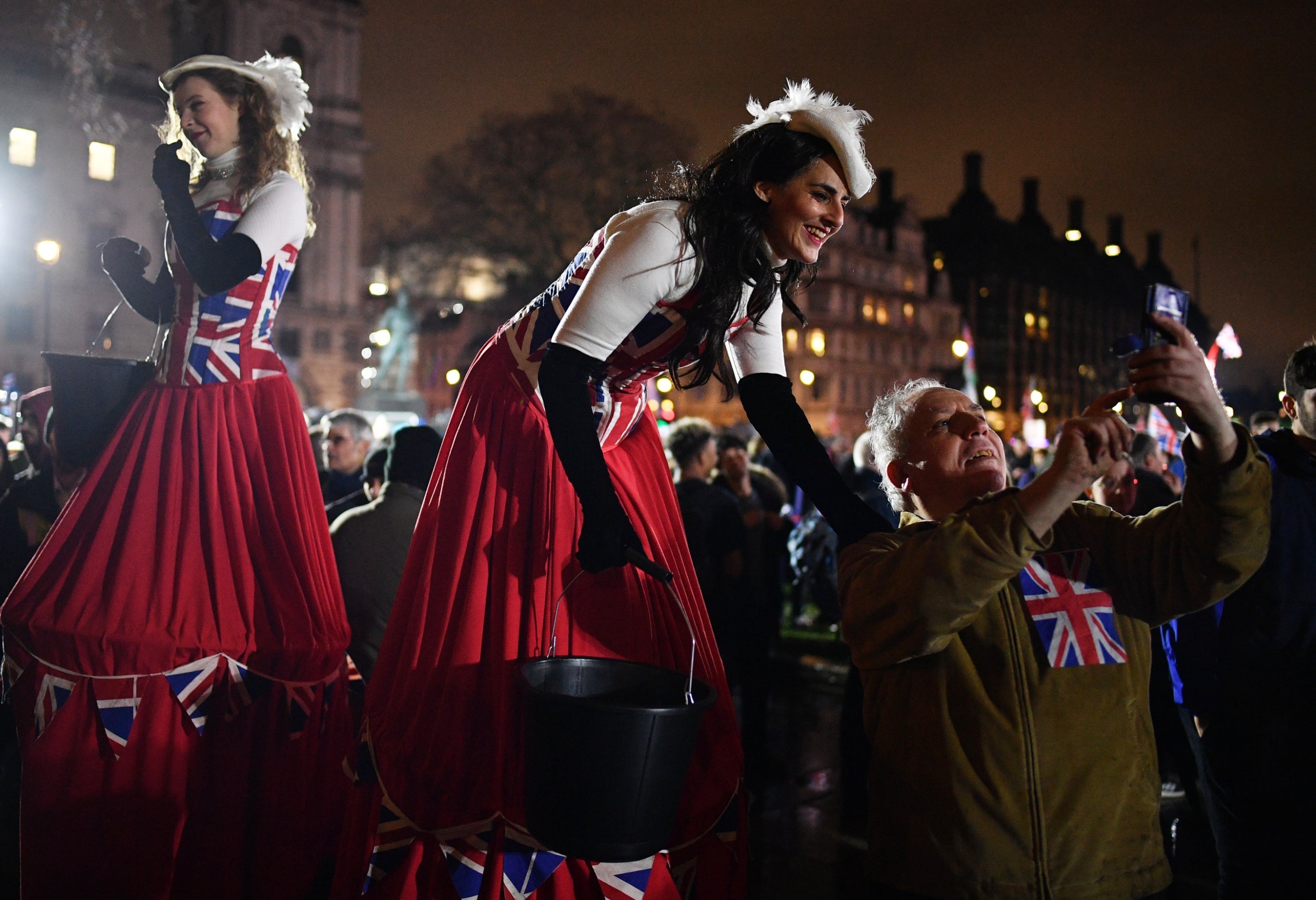
35/37
Getty
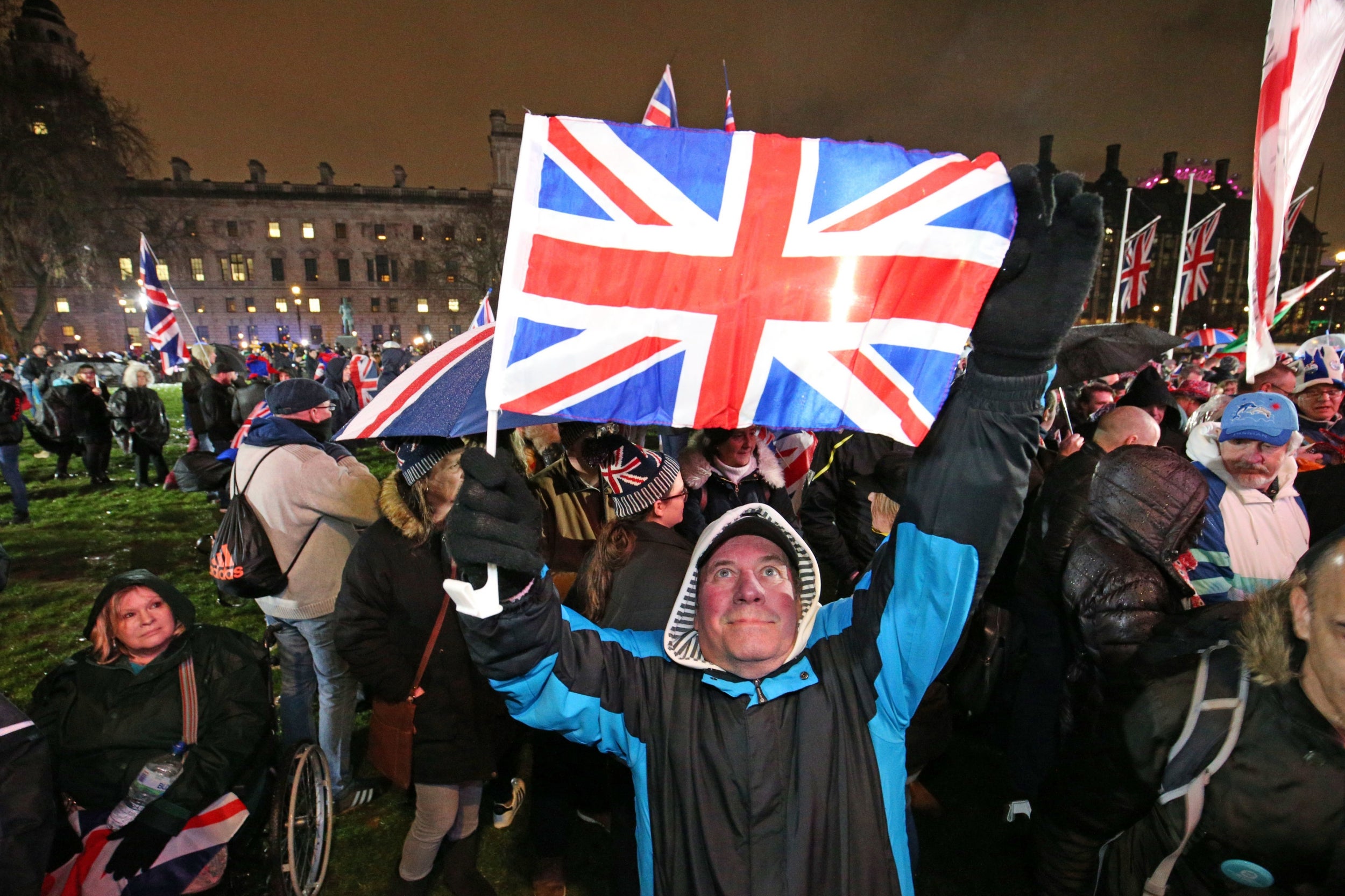
36/37
PA
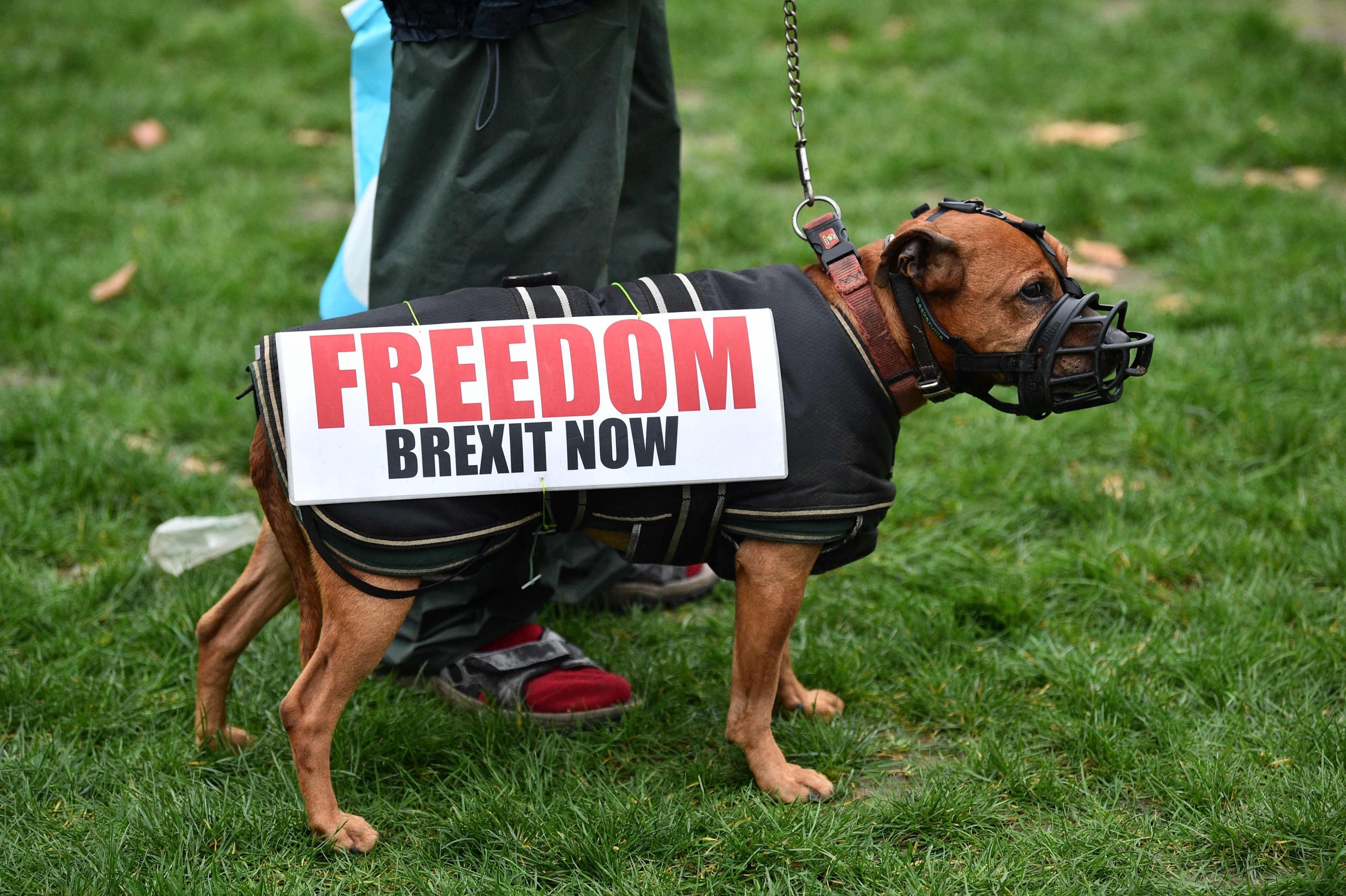
37/37
AFP via Getty

1/37
Pro-Brexit supporters celebrating in Parliament Square, after the UK left the European Union on 31 January. Ending 47 years of membership
PA

2/37
Big Ben, shows the hands at eleven o’clock at night
AFP via Getty

3/37
Pro Brexit supporters attend the Brexit Day Celebration Party hosted by Leave Means Leave
Getty

4/37
Brexit Party leader Nigel Farage smiles on stage
AFP/Getty

5/37
People celebrate in Parliament Square
Reuters

6/37
A Brexit supporter celebrates during a rally in Parliament square
AP

7/37
Police form a line at Parliament Square to prevent a small group of anti-Brexit protestors from going through to the main Brexit rally
PA

8/37
Nigel Farage speaks to pro-Brexit supporters
PA

9/37
PA

10/37
JD Wetherspoon Chairman Tim Martin speaks as people wave flags
Reuters

11/37
Getty

12/37
Brexit supporters wave Union flags as they watch the big screen
AFP via Getty

13/37
Brexit Party leader, Nigel Farage arrives
Reuters

14/37
Brexit supporters gather
AP

15/37
Ann Widdecombe speaks to pro-Brexit supporters
PA

16/37
Brexit supporters wave Union flags as they watch the big screen
AFP via Getty

17/37
AFP via Getty

18/37
People wave British Union Jack flags as they celebrate
Reuters

19/37
Pro-Brexit demonstrators celebrate on Parliament Square on Brexit day
Reuters

20/37
A pro-Brexit supporter jumps on an EU flag
PA

21/37
Getty

22/37
AFP via Getty

23/37
PA

24/37
Getty

25/37
AP

26/37
Getty

27/37
A man waves Union flags from a small car as he drives past Brexit supporters gathering
AFP via Getty

28/37
A pro-Brexit supporter pours beer onto an EU flag
PA

29/37
Getty

30/37
An EU flag lies trampled in the mud
Getty

31/37
Getty

32/37
PA

33/37
PA

34/37
Getty

35/37
Getty

36/37
PA

37/37
AFP via Getty
Labour leader Keir Starmer has said he is not calling for an extension, but the Liberal Democrats say they will introduce legislation to force the government to seek one.
“It is clear the government have not made nearly enough progress on Brexit trade talks,” the party’s acting leader Ed Davey said
“To choose a No Deal Brexit crash out when an option to extend the transition is possible would be an act of national self-harm when our NHS, economy and food supply chains are already stretched and struggling. It is time the Prime Minister did the right thing.”



